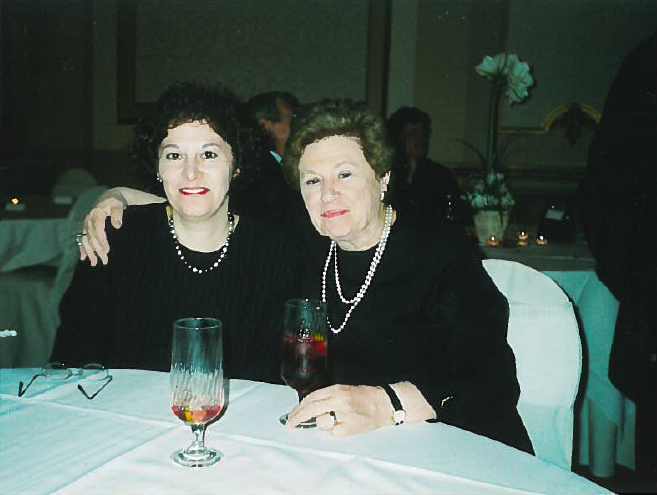“People living with Alzheimer’s disease are still people”
Two Alzheimer’s diagnoses, decades apart, show how much has changed—and how much stays the same—when a family navigates dementia.

Sharon and her mother, Esther, were very close.
“My mother and I used to talk three times each day. One of the first signs that my mother might have dementia was when I noticed she would forget to call me.”
The warning signs of Alzheimer’s disease were well-known to Sharon; it wasn’t the first time that her family had received the diagnosis. Sharon’s grandmother, Esther’s mother, had also lived with dementia.
For the 564,000 Canadians who are living with dementia today, the ability to access information, resources and support has greatly improved. For Sharon and her family, that had everything to do with access to information and support groups.
“When my grandmother was diagnosed in 1972,” explains Sharon, “none of us had ever heard of Alzheimer’s disease. It was a slow progression for her and fairly early on in her life – she was in her early 60s. It was so scary and puzzling for us. Over the course of my grandmother’s very long illness, we saw most symptoms of the disease.

“For my mother, we could basically diagnose it ourselves.”
Sharon and her brothers were able to easily access up-to-date information when their own mother began to show symptoms. That information helped them to plan for the future and find the support that they and their mother needed. They also joined a support group.
The outlook is staggering: By 2031, it is expected that 937,000 Canadians will live with dementia. With no definitive prevention strategy or cure, access to support and education is imperative.
Despite the increase in resources available to families, there is one major barrier that they still face: Stigma.
“With my grandmother, there was a terrible sense of shame,” Sharon remembers. “Why were we so embarrassed? She was ill! But people stopped visiting, my grandfather was isolated. Education for people as to what’s going on helps families to better navigate a dementia diagnosis.”
It is an attitude that still rings true today. Social isolation remains one of the sad outcomes of a dementia diagnosis.
Respecting the personhood of those who are living with a dementia diagnosis is crucial in order to combat the continuing stigma associated with the diagnosis and meet their needs with dignity and care.
For Sharon, the solution is clear.
“Alzheimer’s is not contagious. People who are living with Alzheimer’s are still people. Social interaction is what keeps people going.”
You can help us build social programs, education and meaningful support across Ontario. Donate to the Alzheimer Society of Ontario today.